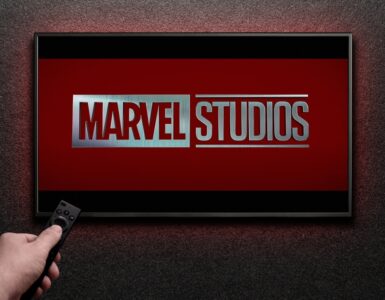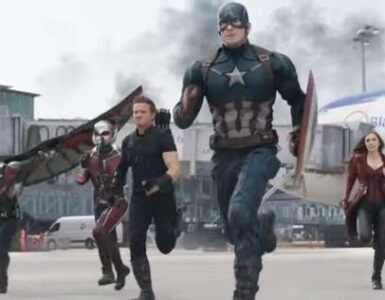Like every other sports season, basketball too, has its moment in the spotlight and the NBA playoffs is that time where teams struggle against a gauntlet of competitive squads, often in seven game series, to definitively determine the king of the hoop’s world. In that anticipatory spirit, we reflect on the extraordinary, defining, playoff moments and players of the past. When exalted figures like Bill Russell, Kareem Abdul-Jabbar, and Michael Jordan captivated the court. When mere basketball players transformed into legends, becoming cultural icons. Here are five of the best NBA playoff moments of all-time.
Of course, the following list is subject to scrutiny. There have been many thrilling NBA playoff moments, many of which could be on this list. However, even if your favorite team or moment is not on this list, the ones that are truly are some of the best NBA playoff moments of all time. These are not only our picks, but the picks based on a composite score from a survey of sports writers, editors, and bloggers.
We’re certain you may have your own opinion about the best NBA playoff moments. Please feel free to share. We certainly welcome any all opinions.
“LeBlock”

Imagine you are, for one second, anointed as the “Chosen One” at the fragile age of 18. The media has scrutinized your gifts, dissected your talents, critiqued your decisions, questioned your resiliency and leadership, for your entire career. Imagine the hopes of a city, desperate for a champion after a 52-year long title-drought, hanging on the threads of your regal fingertips. Though you have won two championships in another city, they are slightly scoffed at by the casual NBA observer, won in the fashion they were, with two other All-Star talents adjacent to you.
Imagine, further, that you have borne the burden of a deeply flawed roster, willed your humdrum Cleveland Cavaliers to the NBA Finals, to a Game 7 of monumental significance, against the greatest regular season team in NBA history. Its inconceivable, frankly. The NBA 2016 Finals essentially featured LeBron and “The Bronettes” versus the formidable Splash Brothers.
One could not possibly craft a more compelling drama.
With slightly under two minutes remaining and the score tied at 89, the Warriors’ Andre Iguodala rebounded an errant floater by Cleveland’s Kyrie Irving. Iguodala turned around and promptly initiated a fast break against the transitioning Cleveland defenders, out letting the ball to a sprinting Steph Curry, who replied with a deft bounce pass back Iguodala, then hitting his stride toward the rim. JR Smith, of the Cavaliers, was already positioned beneath the basket to contest Iguodala’s layup, slightly altering the mechanics of Iguodala’s release enough for a galloping LeBron to suddenly emerge from the ether of the backcourt to forcefully slam the prospective lay-in away.
What would have led to a Warriors’ lead transformed into a stark momentum shift in favor of the Cavaliers. A possession later, Kyrie Irving executed a contested three-point shot, providing Cleveland with a lead they would not yield. The Cavaliers consequently won their first championship for the franchise, and the city’s first title in a major sports league in half a century.
We often enshrine players prematurely, expecting demonstrations of greatness on a consistent basis. When they perform as mere mortals, we become disenchanted with them, casting aspersions against their talents, inveighing against them as listlessly wasting their potential. We feel let down and underwhelmed. Every so often, however, a moment like the “LeBlock” reminds us of the magic undergirding competitive athletics. It reminds us of what can happen when potential meets opportunity, announced and amplified by the magnitude of the world stage.
Big Shot Bob – 5 of the Best NBA Playoff Moments of All-Time

Robert Horry was seldom a conspicuous figure in the NBA, until the minutes were precipitously dwindling in a pivotal game. People often forget Horry lays claim to 7 championship rings, eclipsed as he was by superstar teammates like Shaquille O’Neal, Kobe Bryant, Hakeem Olajuwon, Clyde Drexler, or Tim Duncan. Yet, through a career defined by longevity and consistency, he nevertheless carved a significant niche for himself as an exceptional defender and clutch shooter.
In 2002, Robert Horry was on the Lakers roster. At this point, the Lakers were coming off championships in the preceding two years and were clawing for an elusive, rare, three-peat. They ran into the buzzsaw of the Sacramento Kings in the Western Conference Finals.
At one point, in Game 4, the Lakers were quailing beneath a 24-point deficit in Staples Center, their home arena. Though they had been anointed as the unequivocal favorites in the series, Sacramento had heretofore played feistily, led by Mike Bibby and Chris Weber. The Lakers, nonetheless, were a Goliath for a reason, mounting a staunch comeback in the waning minutes to seriously contest the outcome of the game.
With 18 seconds to go and the Lakers down 99-97, Kobe Bryant, with limbs flailing, took a characteristically difficult floater that careened off the rim. Shaq snatched the rebound, attempting to put-back the forced shot, but also missed. Vlade Divac, the Kings’ Center, batted the ball out of the interior to a waiting Robert Horry, perched conveniently behind the arc. It was a perfect pass by Divac, just to the incorrect team. Horry calmly collected the ball, stepped into his shot, and hoisted what would become the game winner as the clock expired.
The Lakers eventually dispatched the Kings and would go on to win a third consecutive NBA championship, made in no small part to the seminal contributions of Robert Horry, or “Big Shot Bob.”
Miller Time at MSG

Reggie Miller has a peculiar place in NBA history. He’s regarded as one of the most “clutch” players of the 90’s, a foil to Michael Jordan’s Bulls dynasty, yet was still never able to claim a championship for the Pacer’s franchise.
Built as though a small gust of wind might imbalance him, Reggie Miller was nonetheless a marksman from the three-point line. The entire Pacer’s offense was organized around Miller zigzagging off physical screens, in order for him to either loft an open shot from the perimeter, or create shots for others in the interior of the defense.
Though Miller is not often regarded as highly as other superstars of his era, he nevertheless displayed several almost mythical moments. One such moment transpired in Madison Square Garden, the Mecca of Basketball, during the Eastern Conference semifinals against a rugged Knicks squad led by Patrick Ewing.
The game was a gridlock, with neither team gaining a commanding competitive advantage. Still, the Knicks seemed the likely victors, with a marginal lead of 105-99 with roughly 18 seconds remaining. The Pacers had possession and steadily inbounded the ball to Miller, curling off a screen, who then subsequently drained a three-pointer.
Swish.
The Knicks scurried to inbound the ball off the converted three. John Starks, peskily harassed by Miller and the Pacer’s defense, tripped at the bottom of the key, forcing the Knicks to quickly adjust, and Anthony Mason threw an errant pass intercepted by Miller. With agility, Miller
turned around in one dribble, and with no hesitation flicked his wrist for another three-pointer.
Swish.
The game was tied. Sam Mitchell, of the Pacers, no doubt still in shock, was unaware of the score and intentionally fouled John Starks, mistakenly believing the Pacers were down 1. Starks had the opportunity to put the Knicks ahead by two, with seconds dwindling. He wilted under the pressure, however, missing both free throws, and Miller greedily snatched the ensuing rebound. He was immediately fouled and cooly hit two free throws from the charity stripe. The Knicks had roughly three seconds for a Hail Mary opportunity to win, but Greg Anthony stumbled on the last possession.
Game over. Pacers win. Miller time. The Pacers would ultimately end up winning the playoff series in 7 games.
Last Shot – 5 of the Best NBA Playoff Moments of All-Time

Any list cataloguing the greatest moments, or performances, in NBA playoff history, without the inclusion of “His Airness,” Michael Jordan would be incomplete. He is not exactly of small repute. Six rings, two three-peats as champion, six-time NBA Finals MVP, five-time MVP. And that’s not even an exhaustive list of the man’s accomplishments on the basketball court.
Michael Jordan, in 1998, at the age of 35, had again carried his Bulls team to the Finals. Earlier in the season, Jerry Krause, the team’s General Manager, had perhaps prematurely declared that 1998 would be Head Coach Phil Jackson’s last year coaching the team, and the reigning dynasty of the 1990’s seemed vulnerable. The Bulls appeared to be preparing for a rebuild, as strange as that might sound for a squad that had won six championships in eight years.
Emotionally and physically spent after years in the limelight, constantly harangued by the media, the Bulls faced a determined Utah Jazz squad, who boasted the best regular season record in the NBA. Led by the duo of John Stockton and Karl Malone, the Jazz were eager to avenge their Finals loss to the Bulls during the previous season, 1997.
In yet another seesaw battle, Game 6 of the Jazz-Bulls series came down to the final minutes. With 30 seconds remaining, John Stockton prowled along the perimeter, searching for an opportunity for an entry pass to Malone, Utah’s most reliable scorer. Jeff Hornacek set a low-post screen to provide Malone with sufficient breathing space to operate. Michael Jordan was guarding Hornacek who, after setting Malone’s screen, rolled to the edge of the perimeter, in the corner. Mischievously, Jordan lagged of Hornacek, surreptitiously sneaking up on Malone, who was dialing up a post-move, and poked the ball away dexterously. The ensuing action culminated in a Bulls steal.
Jordan casually dribbled the ball up-court, his team down by 1, with 14 seconds remaining in the game. Jordan paused at top of the key, jolted toward the right on a seeming drive to the hoop. Suddenly, he pulled up, the forward momentum of his feint to the basket sending Russell stumbling to the floor. Then…
A calibrated, smooth flick of the wrist. A swift and graceful landing, Jordan holding his pose as the basketball fluttered through the hoop.
For any other player, it would have been an above-average play, nothing to snicker at, but still slightly mundane. For Jordan, however, given the contextual surroundings, the import of the game itself, the legacy of the dynasty he had established, it was sheer poetry in motion. The Bulls won 87-86, adding a 6th championship to their collection. If Jordan wasn’t already considered the greatest basketball player ever, he enshrined himself as such on that day. He became “His Airness.”
Do You Believe in Magic?

In 1979, with professional basketball at its nadir, suffering from rampant drug use, imprudent TV deals, and a noticeable absence of charisma and energy, Earvin “Magic” Johnson was propitiously dropped from the heavens onto the NBA hardwood. He landed in a city brimming with celebrity, popular culture, and entertainment. It was a match ordained by the basketball gods: Magic Johnson and the City of Angels.
Magic arrived as gifted point guard from Michigan State. Earlier in 1979, he had delivered a national championship to the Spartans and was consequently drafted first in the proceeding draft. Rookies normally require a year or two to acclimate to the rigors of the NBA; but for Magic, the transition was seamless.
The Lakers were not without talent when Magic arrived. At Center, in fact, they had Kareem Abdul-Jabbar, the towering legend, touching the sky with his famous hook shot. But, for all of Kareem’s perspicacity on the basketball court, personally, he was somewhat of a social outcast: Bookish, thoughtful, and frequently aloof. And, moreover, Kareem’s supporting cast wasn’t conducive to winning a championship. The Lakers needed a shock of energy, which fatefully arrived in Magic.
In 1980, the Lakers, led by Magic and Kareem, or “Cap,” played in the NBA Finals against the Philadelphia 76er’s and “Dr. J”. Prior to the game, Kareem had suffered an injury grievous enough to render him incapable of participating. Magic, standing at 6”9, was the natural replacement, leaving the Lakers without their precocious point guard in the backcourt.
Improbably, however, Magic rose to the task, leading the Lakers to a stunning victory in Game 6. He had 42 points, and 15 rebounds, a double-double that the 76’ers could not compete with or prevent in any notable fashion. Broadly speaking, the performance announced the Lakers as a viable contender for future championships, with Magic underpinning the “Showtime” offense that so electrified both the NBA viewing audience and LA fans.
Magic’s foil would soon emerge in the person of Larry Bird, in Boston, establishing the stage for a bitter and competitive rivalry that invigorated the NBA in the 1980s.



